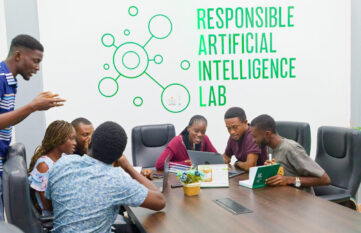© Annie Spratt from unsplash
According to the IFAD (United Nations fund for agricultural development), there are more than 7.5 million smallholder farmers in Kenya, accounting for about 75 percent of the country’s total agricultural output. Unfortunately, the impacts of climate change, such as droughts and unpredictable weather patterns, pose a significant threat to agricultural productivity and to the livelihood of smallholder farmers. Furthermore, many smallholder farmers may not have access to traditional early warning systems due to the nature of their farming practices (i.e. mixed land use for crops and animals), small-medium plot sizes (between 0.5 and 3 hectares), and limited resources to put up infrastructure such as sensors to detect adverse farm conditions (pest and disease) in real-time.
The cooperation between Local Development Research Institute (LDRI) and GIZ’s FAIR Forward project aims at allowing smallholder farmers to use AI technology for crop yield prediction and monitoring. Using data from various sources, including weather stations, satellite imagery, and soil sensors, an AI Early Warning System enables farmers to plan and manage their harvest more effectively.
The tool aims to support precision agriculture practices for major crops, including maize and beans, in Kenya’s Kiambu and Embu counties. So far 800 farms have participated to receive agricultural monitoring and advice. As they receive insights to make informed decisions on when to plant, irrigate, and harvest their crops, farmers can better adapt to the impacts of climate change and natural disasters.
To address the severe lack of rainfall in some zones, LDRI is also encouraging specific farmers to use climate smart seeds (maize varieties that are specifically bred and developed to be more resilient). Farmers compare the performance of these crop varieties with traditional crops. The trials reported that it has been possible to obtain yields from 3 to 4 crop cycles annually (especially in the higher altitude ecological zones) from climate smart seeds as compared to 1 to 2 planting/crop cycles experienced previously.

Image: Discussions between a field monitor (from LDRI; left) and a village-based advisor (right) during a farm visit to Embu, Kenya in February 2023.
According to Leo Mutuku, the project’s team lead and research & AI lead at LDRI, one of the major challenges is the lack of reliable local insights. Therefore, over the last 12 months, the project has been engaging village-based assistants (VBAs) to help with ground-truth data collection (e.g. demographic information of the farmers and plot boundaries for crops) These local data points are essential to validate the accuracy of the remote sensing data and improve the performance of the AI algorithms.
Since smallholder farmers are particularly vulnerable to the impacts of climate change and natural disasters, the Early Warning System shall help farmers to make key decisions. Knowing when to plant, irrigate, and harvest crops will reduce the risk of crop failure and increase their resilience to climate change.



